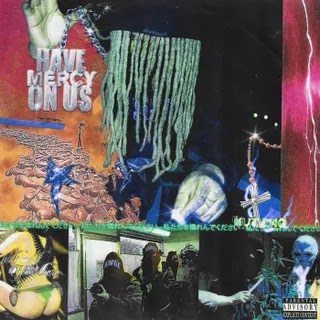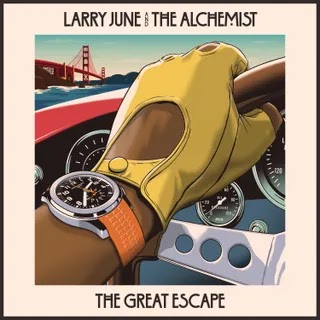On her fourth album, the UK rapper wrestles with the split between her public persona and private self, raising broadly relatable questions about the craving for validation.
In the hundred or so years since Carl Jung popularized the term “introvert,” a few common misconceptions have emerged. Foremost among them is that introversion is the same as shyness or a lack of confidence. Jung’s more nuanced position was that introverts are people who focus their energy inwards, thoughtful and connected with feeling. Their extraverted counterparts, meanwhile, project outwards, thriving on interaction and attention. Whether (or how) a pop star could be an introvert is the sort of topic that could fill a book—or an album.
Little Simz poses the question directly: “Simz the artist or Simbi the person?” It slips out a couple of minutes into the UK rapper’s fourth album, concealed beneath the brassy drama of masterful opener and lead single “Introvert.” It’s hidden in the title, too: Shorten Sometimes I Might Be Introvert to an acronym and you get SIMBI, the nickname that Simz, real name Simbiatu Ajikawo, goes by among her friends. The modern pursuit of everyday validation makes the question more pressing—“Why the desperate need for an applause?” she asks on the bubbling “Standing Ovation”—and reshapes it into one that you don’t need to be a pop star to relate to.
A couple of albums into her career, Little Simz had picked up the admiration of two of her musical idols—Kendrick Lamar called her “one of the illest doing it right now” and Lauryn Hill took her on tour. Then, in 2019, her introspective but musically adventurous third album, GREY Area, proved to be a watershed. Simz’ profile shifted from “acclaimed but underappreciated” into something more like “national treasure in waiting.” A starring role in Netflix’s Top Boy reboot, countless cover shoots, and a grab bag of awards and nominations have stationed her on the cusp of household-name status in the UK. But despite the confidence in her abilities—“Honestly, respectfully, I think I’m very, very talented,” she told the London Evening Standard this year—Ajikawo has watched the gulf between Simz and Simbi widen as acclaim rolls in. “Don’t be so obsessed with me you think you what’s best for me,” she purrs on “Standing Ovation,” before slipping into her own Jungian analysis: “Take my energy, come to find there’s nothing left of me.” She’s caught in a bind. Writing is how she figures out what she thinks, who she is (“I bottle up and then spill it in verses,” goes “Introvert”), but how does she deal with the fact that, the bigger she gets, the more people will be privy to those inner tussles? What happens when the dream comes true, and the world listens in while you confront your “daddy issues”?
The weight of these questions doesn’t drag SIMBI down or stunt the album’s flow. Its 19 tracks fall broadly into three camps. There’s the orchestral swagger and playful sampling of songs like “Introvert,” “Woman,” “Little Q PT2,” and “Miss Understood.” The arrangements here are glorious: huge swathes of string and horn, cascading drums, choral flourishes. These songs luxuriate in their own richness. Against this backdrop, Simz’s delivery comes like a whisper. The pairing fits: More conversation than sermon, Simz makes hefty subjects—familial rifts, systemic racism, youth violence—more manageable. “I Love You I Hate You” picks over the open wounds left by an absent father. Lines like, “Is you a sperm donor or a dad to me?” land like a boot to the gut. But like the best love songs, the track’s design—the chorus a sort of inverted petal-pulling exercise—invites the listener to see their own experiences in Simz’ stories.
A run of songs in the album’s sprightly second half offers a burst of extroversion. Simz takes over from Simbi on “Rollin Stone,” hurtling over grime and trippy trap with bars like, “Can’t believe it’s Simbi here that’s had you listenin’/Well, fuck that bitch for now, you didn’t know she had a twin.” She boogies in the blown-out colors of “Protect My Energy,” then follows with back-to-back bops on the Obongjayar-featuring “Point and Kill” and Fela-esque “Fear No Man.” These moments are delightfully blithe and airy. When Simz takes a big swing, she very rarely misses. “Woman” wouldn’t sound out of place on The Miseducation of Lauryn Hill.
Lengthy interludes—so rarely beneficial—are dotted throughout, the bulk of which are narrated by fellow Netflix star Emma Corrin (monarchy fans will recognize her as Princess Diana from The Crown). These are mostly tiresome and offer a full bingo card of clichés—“follow your heart,” “pressure makes diamonds,” “the top of the mountain is nothing without the climb,” “only the strong will survive,” etc.—but fulfill a basic role of providing breathing space between beats. Simz is occasionally guilty of the sort of rapping that packs syllables at the expense of real meaning (the closing stretch of the otherwise tender and intimate “I See You” is a culprit here), and these highfalutin intermissions are another version of that tendency to overreach in pursuit of epiphany.
But there’s still that nagging doubt. On “Standing Ovation,” she sits at home, surrounded by her spoils, asking “What is it I’m meant to be?” Twelve years ago, Simz was asking a similar question in a different way. She was standing outside London’s Roundhouse theatre in a throng of teenage boys, trading verses over rough, beatboxed grime instrumentals. “They say they wanna be a superstar, but are they gonna work hard to achieve that?” she rapped into the circle of adolescents. More than a decade on, her work is there to see. Much of it has been concerned with figuring out who Little Simz is and where she stands; Sometimes I Might Be Introvert still tugs at that thread. This is the sound of Simz reconciling with Simbi. And it sounds great. Cue the ovation.
















0 comments:
Post a Comment